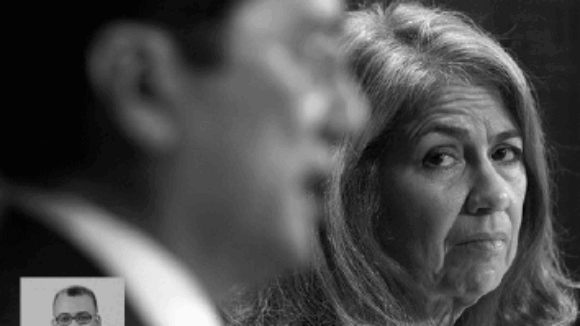Right to Work Revving up 2014 Candidate Survey
Pro-Compulsory Unionism Candidates Will Have No Way to Hide (click to download newsletter) At the outset of President Obama’s first term in early 2009, top union bosses…

Pro-Compulsory Unionism Candidates Will Have No Way to Hide (click to download newsletter) At the outset of President Obama’s first term in early 2009, top union bosses…

Chairman Wilma Liebman and other Big Labor members of President Obama's NLRB have proposed radical new rules for union organizing campaigns that would drastically curtail independent minded employees' ability to resist unionization. Credit: Radaris.com President's Handpicked Bureaucrats Ignore 2010 Election Results (Source: July 2011 NRTWC Newsletter) In the 2007-2008 and 2009-2010 Congresses, Big Labor's top objective was a rewrite of federal labor law making it even easier for union bosses to seize monopoly-bargaining power over millions of employees in the American private sector. Union strategists' legislative vehicle was the cynically mislabeled "Employee Free Choice Act," introduced by pro-forced unionism Congressman George Miller (D-Calif.) and Sen. Ted Kennedy (D-Mass.). After Mr. Kennedy died in 2009, union-label Iowa Democrat Tom Harkin took over as the lead Senate sponsor. The Miller-Kennedy-Harkin measure was more accurately called the "Card-Check" Forced-Unionism Bill. Even without a federal card-check mandate, union bosses have long been able to acquire "exclusive" (monopoly) power to negotiate employees' pay, benefits, and work rules solely through the acquisition of signed "union authorization cards." Consequently, individual workers under the peering eyes of union organizers may be intimidated into signing not just themselves, but all of their nonunion fellow employees, over to union-boss control. However, as stacked as current law is in favor of Big Labor's monopoly-bargaining power, employers nevertheless retain the right to stand up for their employees against union-boss intimidation tactics. But Miller-Kennedy-Harkin would have empowered union officials to impose monopoly bargaining through card checks automatically, with no recourse for any pro-Right to Work employee or employer. This legislation was totally contrary to the policy views of the vast majority of citizens, including union members. Last November 2, 31 Card-Check Bill Supporters Lost Their Re-Election Bids "Over the years, polls have shown Americans overwhelmingly oppose union monopoly bargaining, period," explained National Right to Work Committee President Mark Mix.

Chairman Wilma Liebman and other Big Labor members of President Obama's NLRB have proposed radical new rules for union organizing campaigns that would drastically curtail independent minded employees' ability to resist unionization. Credit: Radaris.com President's Handpicked Bureaucrats Ignore 2010 Election Results (Source: July 2011 NRTWC Newsletter) In the 2007-2008 and 2009-2010 Congresses, Big Labor's top objective was a rewrite of federal labor law making it even easier for union bosses to seize monopoly-bargaining power over millions of employees in the American private sector. Union strategists' legislative vehicle was the cynically mislabeled "Employee Free Choice Act," introduced by pro-forced unionism Congressman George Miller (D-Calif.) and Sen. Ted Kennedy (D-Mass.). After Mr. Kennedy died in 2009, union-label Iowa Democrat Tom Harkin took over as the lead Senate sponsor. The Miller-Kennedy-Harkin measure was more accurately called the "Card-Check" Forced-Unionism Bill. Even without a federal card-check mandate, union bosses have long been able to acquire "exclusive" (monopoly) power to negotiate employees' pay, benefits, and work rules solely through the acquisition of signed "union authorization cards." Consequently, individual workers under the peering eyes of union organizers may be intimidated into signing not just themselves, but all of their nonunion fellow employees, over to union-boss control. However, as stacked as current law is in favor of Big Labor's monopoly-bargaining power, employers nevertheless retain the right to stand up for their employees against union-boss intimidation tactics. But Miller-Kennedy-Harkin would have empowered union officials to impose monopoly bargaining through card checks automatically, with no recourse for any pro-Right to Work employee or employer. This legislation was totally contrary to the policy views of the vast majority of citizens, including union members. Last November 2, 31 Card-Check Bill Supporters Lost Their Re-Election Bids "Over the years, polls have shown Americans overwhelmingly oppose union monopoly bargaining, period," explained National Right to Work Committee President Mark Mix.